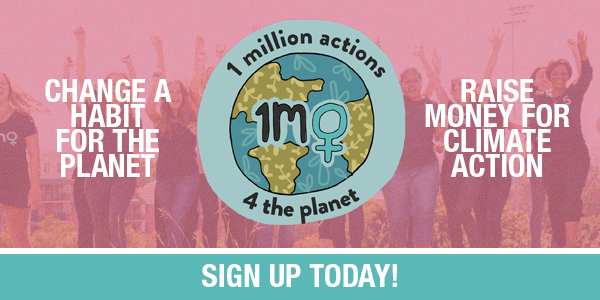Can you cut 1 Tonne of carbon pollution out of your life?
Take the challengeOne of the most common challenges I hear from people who would like to embrace plastic-free or zero waste living, is that they don’t live near a bulk store. Access to bulk stores definitely makes plastic-free living infinitely easier – but that doesn’t mean that without them, it’s impossible.
In fact, there are still plenty of things that you can do to reduce your plastic footprint, wherever you live, wherever you shop and however busy you are. Here's a list of my top 8.
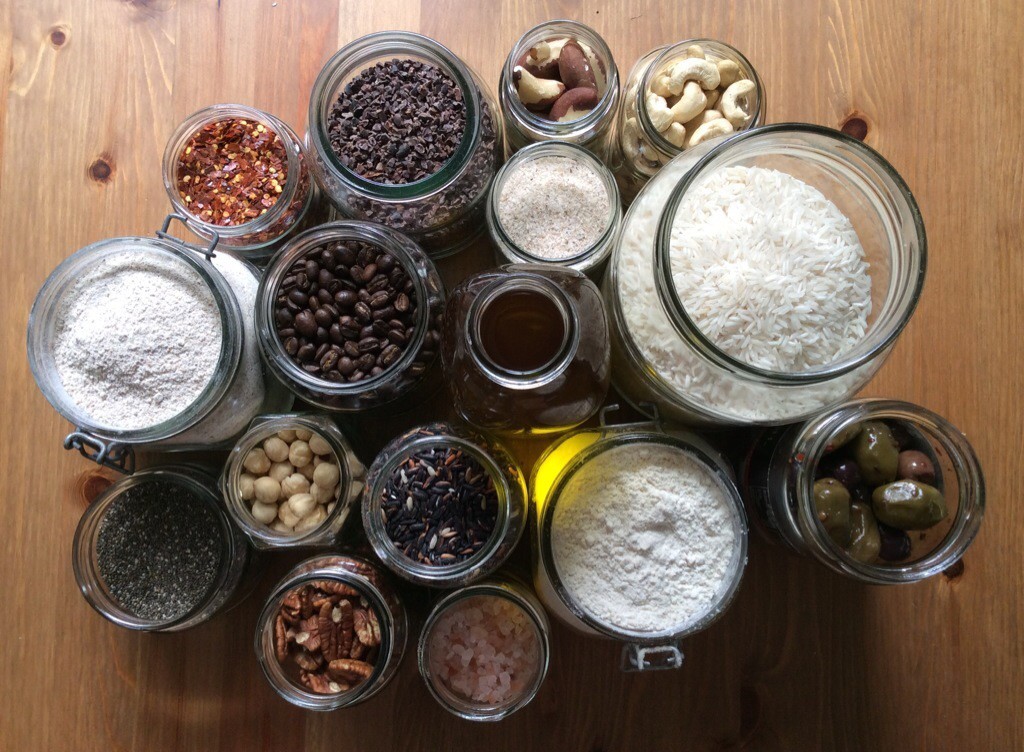
Don't make the mistake of doing nothing because you cannot do everything.
This is so important! Just because there isn't a bulk store near you, that doesn't mean that you should give up before you begin. Remember that every single piece of plastic that has ever been made is still in existence today, so every single piece of plastic you refuse is one less piece entering our environment. We just need to start where we are, with what we have, and do what we can. Even if you can only refuse a few things, or make a couple of changes, it all counts. If we all did the best we could, think how much better the world would be! Don't stress about what you can't change, look for what you can change.
Eat more fresh vegetables!
Apologies for sounding like your Nan here, but seriously – food packaging accounts for such a significant amount of the waste we produce, and one of the easiest ways to reduce this is to eat more fresh fruit and vegetables. Look for unpackaged fruits and vegetables, or if you still need to buy in packaging, try to choose the bigger packs (there will be less plastic overall). Potatoes and sweet potatoes are a great high-carb alternative to pasta and rice, and are easy to find plastic-free. If you don't know how to cook something, look on the internet for simple recipes. This is where I'm going to offer different advice from your Nan – you do not need to boil everything for 30+ minutes! Plenty of veggies can be roasted (try carrots, broccoli and cauliflower), stir-fried, broiled, baked, sautéed – or eaten raw.
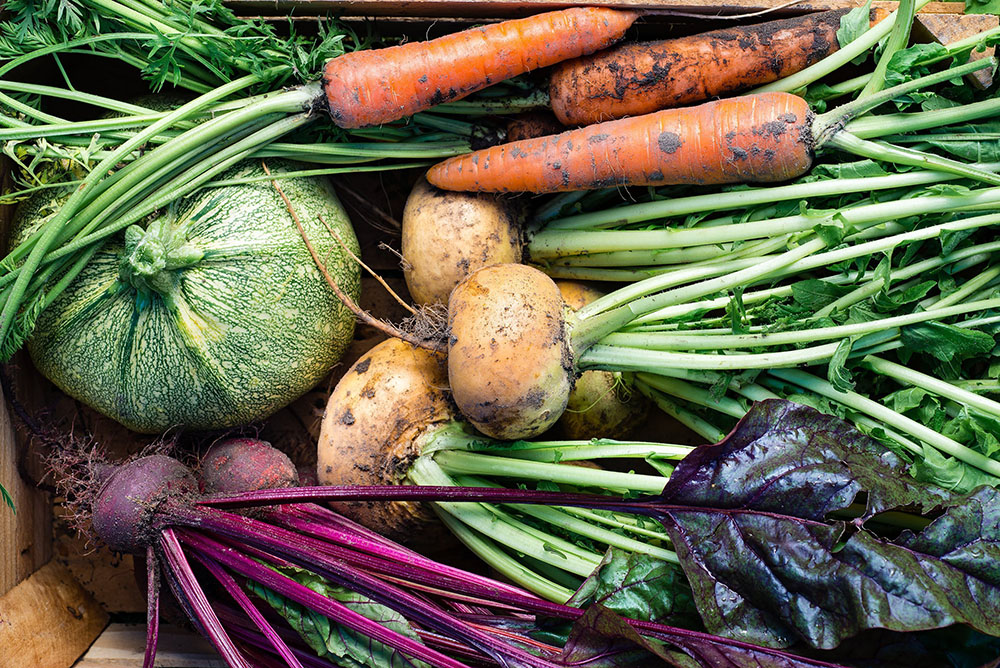
Also, many veggies can be frozen once cooked. If you live in a small household and don't want to eat an entire pumpkin this week, chop into cubes, roast it as usual and freeze what you don't need. Other vegetables, such as leeks and broccoli, can be blanched for 1-3 minutes, and then frozen. This guide lists how to freeze a number of vegetables and might be a helpful starting point.
Bring your own reusable bags – not just your main shopping bags
As well as your own shopping bags, bring reusable produce bags for all your loose produce items, and a cloth bag for any bread you need.You can find produce bags available for sale online (made of cloth or mesh, some pre-labelled and others plain) – or you can make your own using your own fabric or even old net curtains!
Find out how to make your own fruit and veg produce bags!

If you forget, and you're buying too many items to simply pop them in your trolley loose, you can often find paper mushroom or potato bags so use these as an alternative to plastic.
Look for packaging in glass, cardboard and paper, and adapt where you can
When I first started out with plastic-free living, I continued to shop at the supermarket. Whilst I found most of the pre-prepared products were packaged in plastic, I found many wholefoods and single ingredients that were packaged in glass and cardboard. For example, in my local store I could buy pasta and couscous in cardboard packaging, as well as oats and rice, but I could not buy quinoa or bulgar wheat. I began buying more oats over breakfast cereal; eating porridge for breakfast and using more oats in baking. In glass jars I found passata so I began to buy this rather than chopped tomatoes in Tetra-Paks (which are difficult to recycle) or tins (which are plastic-lined and contain BPA). After all, passata is just chopped tomatoes that have been blended! (Later I discovered that simply using fresh tomatoes and quickly chopping saved packaging dilemmas altogether.)
How far you take this will depend on whether you have dietary restrictions or fussy eaters in your household, but even one change is a step in the right direction.
Remember, you can still buy bulk within the store
I'm not talking about buying huge quantities of food you probably won't eat here, I'm referring to choosing one product over individual portions and single serves. Even if the bigger one still comes in packaging, it will be far less than all those individual portions added together. Rather than buying individual pots of yoghurt, buy a 1kg tub (or bigger) and split into smaller containers at home. Rather than snack portions of raisins or crackers, buy a big pack and divide up yourself. Rather than buying individual slices of cheese, or grated cheese, buy a big block and chop or grate at home (tip – you can freeze cheese so there's no reason why you can't buy a big block and freeze what you won't use straightaway for later).
Aside from saving the plastic, you'll save a huge amount on your grocery bill. Check the price per kilo of the bulk items versus the "convenience" items and you'll find that convenience comes at a price – and you won't just be saving the environment with these choices!
Supermarket or not – bring your own containers!
It's possible to take your own containers to the counters at the supermarket or your local stores: the butcher, fishmonger, cheese shop or deli. Make sure they are clean, and explain why you're doing it as you hand your containers over. Confidence is everything – act like you've done it a million times before, and it is the most normal thing to do in the world! If you're unsure that they will be accepted, or feel really nervous, you can always phone the store in advance and ask if they'd be happy to take your own clean containers (be sure to tell them why). You may find the odd place that isn't willing to help, but most are happy to support this kind of shopping. If they have restrictions, find out what they are. (They may be happy to use containers for pre-cooked products, but not raw, for example. They may be happy to fill your own containers, but only if you drop them off by a certain time, or on a certain day.)
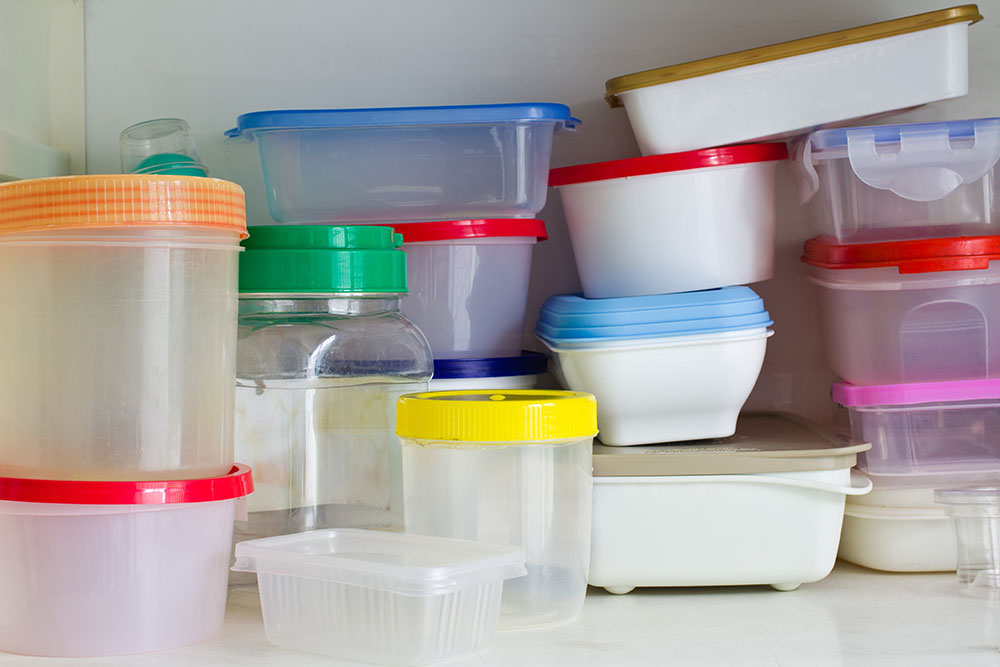
If a staff member is unwilling to comply, it may be that you simply need to check with the manager (they may be fearful of losing their job, and a quick conversation can sort this out). If the store is definitely against it, you could push higher up if they are a chain or have a Head Office, or simply take your business elsewhere. If you do receive a "no", keep it in mind and try again in a few months – something may have changed!
If places aren't willing to comply, there may be the option of the staff wrapping your item in paper and you putting the paper-wrapped product into your sealed container yourself. It's always worth asking if they have paper behind the counter.
Refuse single-serve and single-use items
"Refusing" is such a big part of the plastic-free living journey, and we can remove so much plastic from the environment just by making this simple choice. Refusing bottled water and carrying our own bottle and refilling from the tap; choosing to dine in rather than get takeaway or bringing our own containers; refusing straws; refusing individual sachets of sauce, butter or those tiny little portions of milk… it all makes a difference. Carrying your own water bottle or coffee cup and a reusable straw is a great alternative if you're often out, and a great way to start conversations. Simply asking at the cafe if you can have a splash of milk directly into your tea or a little bit of butter cut directly from the block rather than the single-serve portions is a surprisingly easy way to avoid plastic and make a point.
Go outside and pick up litter!
No matter where you live, what shops are available to you or what your budget is, or how much time you have to spare, you can do this. Simply go out of your front door and onto your street with a bag, and pick up all the plastic litter you come across. You may prefer to go to the beach or alongside a river, if you have one close by, but wherever you choose to go, I guarantee there will be some litter. Whether you opt for a 2 minute beach clean, simply commit to pick up 3 things, or decide to take a 30 minute walk and see what you come across, it all makes a difference. Pick up any plastic items that you find, and then dispose of them responsibly. You'll be stopping that plastic getting ingested by wildlife or making its way to the ocean, and making your local environment a more pleasant place to be. You'll probably feel a lot more determined to avoid single-use items afterwards, too!
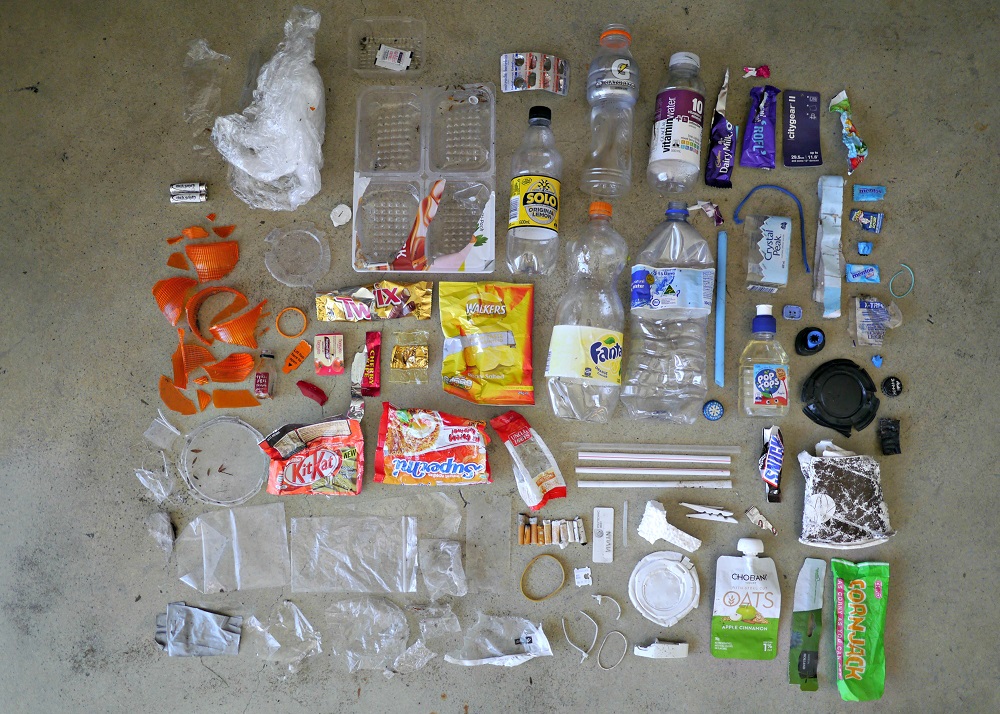
[Image Caption] I picked this up in 30 minutes simply by walking around my local streets.
Whatever you can do, you really must know that what you do makes a difference. The smallest actions can have the biggest impacts, and choosing just one thing to change is better than changing nothing at all. The planet, the turtles and the plastic-free community; we will all thank you for it. Don't let a lack of local bulk stores stand in your way. It really doesn't matter how far you take this. What matters is that you try.

